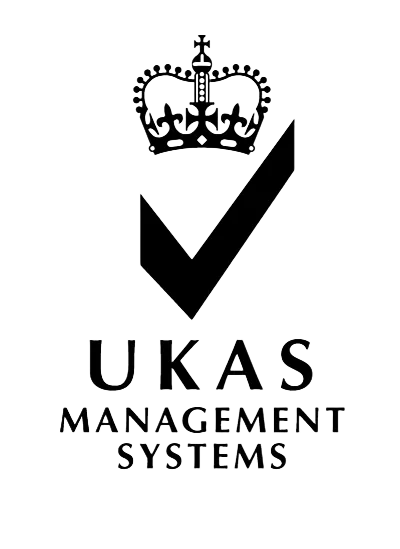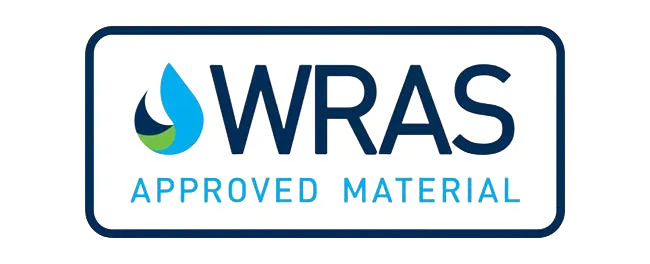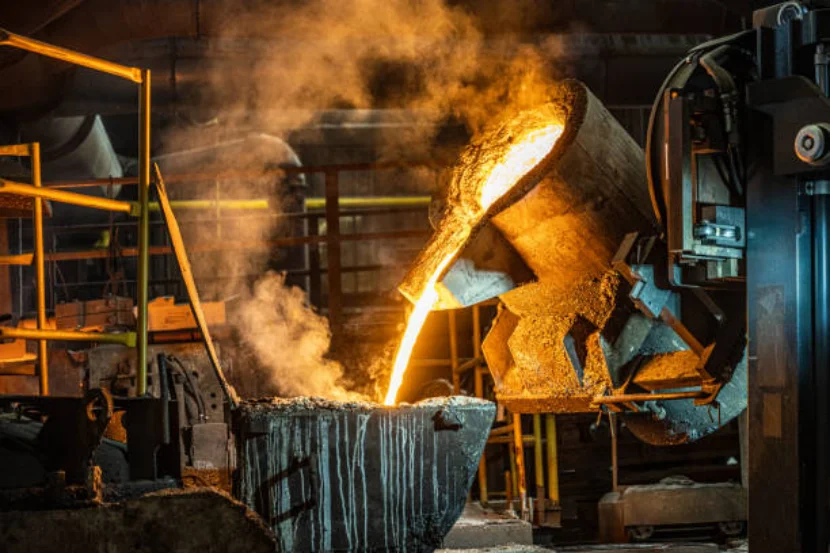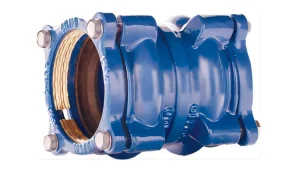球墨铸铁概述
球墨铸铁的关键特性
球墨铸铁,有时也称为球墨铸铁或球墨铸铁是一种坚固的铸铁。它坚韧、易弯曲,且能很好地抵抗磨损。普通铸铁很容易折断,因为它有片状石墨屑。但球墨铸铁有圆形石墨片。这些让它伸展而不折断。这就是为什么它非常适合需要力量和灵活性的工作。
延性铁 超级强壮。它可以承受沉重的打击,即使大量使用也能继续使用。它很容易切割或成型。此外,它还能很好地防锈。这些特性使其非常适合工厂工作。它可以承受大压力而不会开裂。因此,人们将其用于管道和汽车零件等重要物品。
球墨铸铁的成分和显微组织
球墨铸铁是由碳、硅和微量的镁或铈制成的。这些在制作过程中混合在一起。它们有助于形成圆形石墨块,而不是片状石墨块。这种材料在这些圆形钻头周围有铁素体或珠光体的混合物。
这种混合决定了球墨铸铁的性能。铁素体混合物使其更具弹性和韧性。珠光体混合物使其更硬、更强。通过调整这种组合,制造商可以将球墨铸铁适应不同的任务。
什么是球墨铸铁?
球墨铸铁的制造过程
什么是球墨铸铁?它是经过精心制作的。热的熔融铁在成型前会用镁或铈处理。这将石墨从薄片变为圆形碎片。当铁受到压力时,这些钻头可以阻止裂纹扩展。
它始于在炉中熔化生铁或旧钢。当金属过热时,镁或铈会被添加到一个特殊的桶中。这部分需要做得恰到好处,才能将所有东西均匀混合。然后,将热金属倒入模具中冷却并硬化成所需的形状。
金属冷却的速度有多快是一件大事。以正确的方式冷却它可以确保石墨形成圆形碎片,而不是薄片。这就是赋予球墨铸铁强度和弯曲性的原因。
延性铸铁与其他类型的铸铁之间的差异
与其他铸铁相比,球墨铸铁是什么?它很特别,因为它既坚固又灵活。普通灰口铸铁具有片状石墨,因此在应力下容易断裂。但球墨铸铁有圆形石墨钻头。这些让它弯曲而不折断,使它更坚固。
灰口铸铁适用于停止振动的零件,如发动机缸体或机器底座。它们不能处理重物。但球墨铸铁更适合管道、齿轮或汽车悬架零件等艰巨的工作。它更强壮,持续时间更长。
白铸铁也不一样。它没有自由石墨。它有硬质碳化物钻头。这些使它变得非常坚硬,但超级脆。它不像球墨铸铁那样容易弯曲。
混合关节 创建自定义管道连接。他们使用球墨铸铁等材料在恶劣条件下工作良好。
延性铁在各个行业的应用
球墨铸铁在供水系统中的应用
球墨铸铁管在供水系统中占有重要地位。它们非常坚固,经久耐用,不易生锈。这些管道输送饮用水,可以承受很大的压力。他们也能抵御恶劣天气。这使得它们非常适合城市供水网络。它们不需要经常修复,并且可以持续工作多年。
为了更好地防锈,球墨铸铁管涂上了特殊的涂层。水泥砂浆或塑料包裹物可以保护它们免受粗糙的污垢或化学物质的侵害。即使在困难的地方,这也能让水顺利流动。
球墨铸铁在油气管道中的作用
天然气和石油管道需要能够承受冲击的材料。它们处理高压、温度变化和恶劣的东西。 延性铁管 非常适合这个。它们坚固的结构可以承受大的负载,而不会弯曲或断裂。
这些管子也是弯曲的。它们可以处理地震引起的地面震动或沉降的泥土。这意味着休息时间更少。此外,它们不会很快磨损。这使它们变得可靠,并随着时间的推移节省了资金。
球墨铸铁在化学加工中的重要性
化工厂需要能够处理强化学物质并保持坚韧的材料。球墨铸铁是首选。它能防锈,在恶劣条件下仍能保持。它用于处理化学品的泵、阀门和储罐等。
制造商可以根据特定工作改变球墨铸铁的成分。例如,添加镍可以更好地抵抗酸性物质。这使得球墨铸铁非常适合艰巨的化学任务。
探索使用球墨铸铁的优势
球墨铸铁的强度和耐久性
球墨铸铁非常坚固,经久耐用。普通铸铁因其片状石墨而容易断裂。但球墨铸铁有圆形石墨钻头。这些使其能够承受重物而不会开裂。
它的强度使其非常适合桥梁、汽车零件或重型机器等大型工作。球墨铸铁可以反复承受很大的应力而不会磨损。这使得它在很长一段时间内都能很好地工作,即使是在困难的地方。
球墨铸铁的耐腐蚀性能
球墨铸铁擅长防锈。它有硅之类的东西,当它接触到空气或水时,会形成一层保护层。这一层可以阻止更多的生锈,并有助于延长零件的使用寿命。
对于粗糙的地方,如地下管道或海上结构,额外的保护是明智的。可以添加涂料或特殊系统。这些使球墨铸铁能够很好地工作,而大型项目几乎不需要维护。
常见问题解答
球墨铸铁的主要用途是什么?
它用于需要强度和弯曲性的工作,如用于水、天然气管道、汽车零件和化工设备的球墨铸铁管。
球墨铸铁与普通铸铁相比如何?
普通铸铁有片状石墨,所以很容易折断。球墨铸铁有圆形石墨钻头,使其更坚固、更弯曲。
球墨铸铁适合生锈的地方吗?
是的,由于其成分,它能很好地防锈。但对于真正粗糙的地方可能需要额外的涂层。
为什么弯曲在铸铁等材料中很重要?
弯曲使材料拉伸而不断裂。这使得球墨铸铁非常适合管道和结构等艰巨的工作。
球墨铸铁可以根据特定需求制造吗?
是的,制造商可以在生产过程中调整其妆容,以适应不同的任务。
有关使用球墨铸铁的管道解决方案的更多信息,请联系Conflex接头。他们是专业人士,在帮助欧洲、美洲、亚洲等地超过15年!











